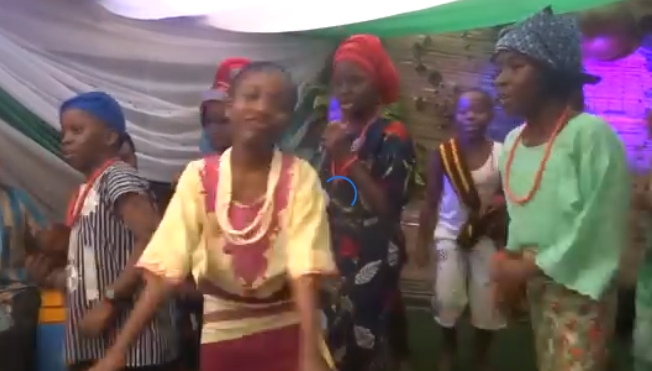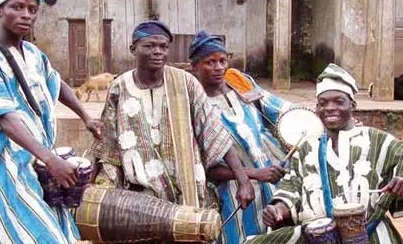
support@yorubalibrary.com
+2348073529208, 07038599574

Traditional Yoruba songs have long been a vital part of Yoruba culture, embodying the history, beliefs, and values of the Yoruba people. These songs, often passed down through generations, are not only a source of entertainment but also a means of education and cultural preservation. In recent years, these traditional songs have seen modern adaptations, blending old and new to create a dynamic musical landscape. This article explores the significance of traditional Yoruba songs and their modern adaptations.
The Essence of Traditional Yoruba Songs
Traditional Yoruba songs are used in the daily lives and rituals of the Yoruba people. They are sung during various occasions such as festivals, weddings, funerals, and religious ceremonies. These songs often feature themes of love, bravery, wisdom, and the divine, reflecting the richness of Yoruba culture.
Musical Elements of Traditional Yoruba Songs
Traditional Yoruba music is characterized by its use of percussion instruments, such as the talking drum (dùndún), bata drum, and gangan drum. These instruments, along with call-and-response vocals and complex rhythms, create a unique and captivating sound. The lyrics are typically poetic, filled with proverbs, idioms, and praises that convey deep meanings and stories.
In recent years, traditional Yoruba songs have been adapted by contemporary artists, blending traditional elements with modern musical styles. This fusion has given rise to a new genre of music that appeals to both the younger generation and those with an appreciation for traditional sounds.
Incorporation of Modern Instruments
Modern adaptations often incorporate instruments such as the electric guitar, keyboard, and synthesizer, adding new dimensions to traditional Yoruba music. This fusion of instruments creates a rich and diverse soundscape that resonates with a broader audience.
Contemporary Yoruba musicians often blend traditional songs with popular music genres such as Afrobeat, hip-hop, and highlife. This blending not only keeps traditional songs relevant but also introduces them to new listeners. Artists like Fela Kuti and Dagrin have successfully integrated traditional Yoruba elements into their music, gaining international acclaim.
Preservation of Cultural Heritage
Modern adaptations of traditional Yoruba songs play a crucial role in preserving cultural heritage. By re-interpreting these songs, contemporary artists ensure that the cultural significance and historical value of the music are not lost. This practice also helps bridge the gap between generations, fostering a deeper understanding and appreciation of Yoruba culture.
Several modern adaptations of traditional Yoruba songs have gained popularity. For example, the song “Ojuelegba” by Wizkid features elements of traditional Yoruba music, while still appealing to a global audience.
Conclusion
Traditional Yoruba songs and their modern adaptations demonstrate the enduring relevance and adaptability of Yoruba culture. By blending traditional and modern musical elements, contemporary artists are preserving cultural heritage while creating innovative and engaging music. This fusion not only keeps traditional Yoruba songs alive but also ensures they continue to inspire and educate future generations.

The unique styles of Yoruba Bata and Dundun dances…

The emergence of new age social media and impact i…